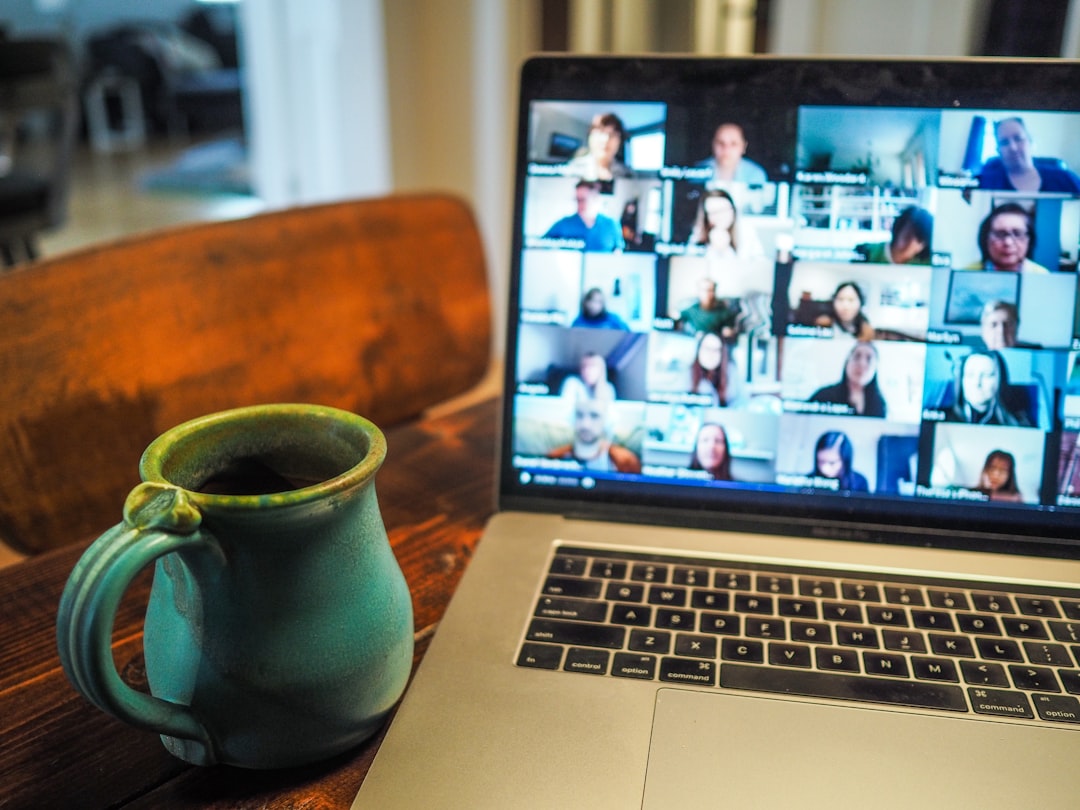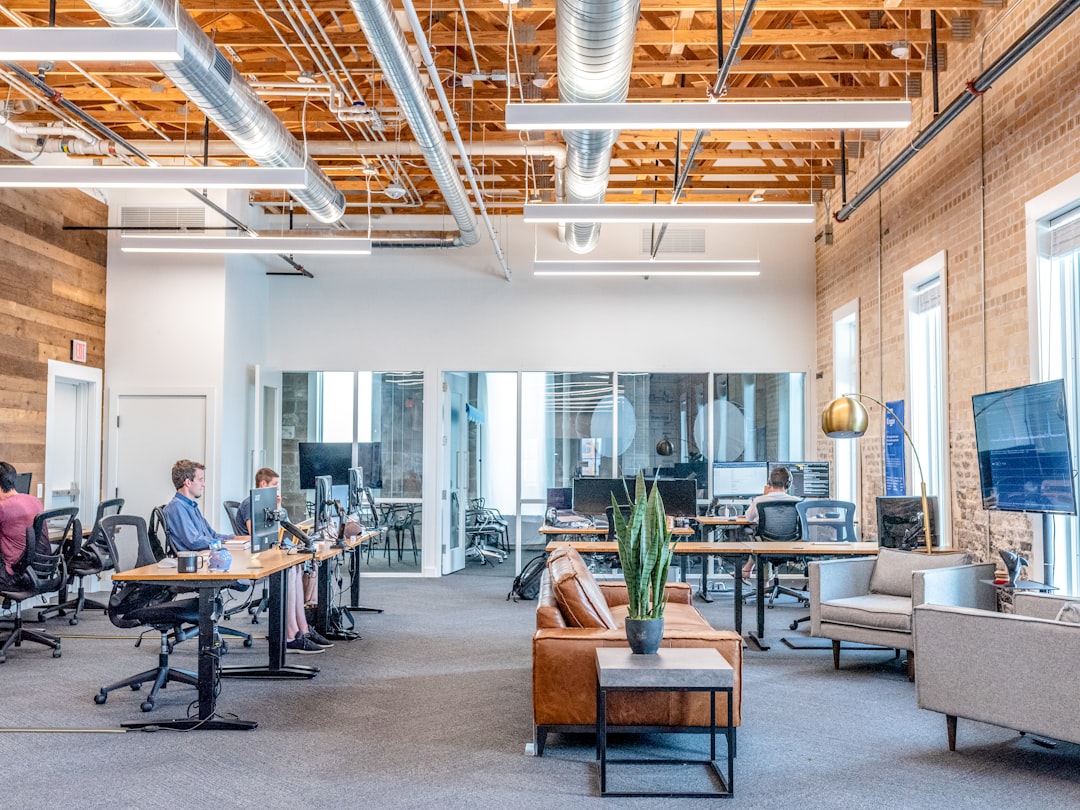The Effects of COVID-19 on Remote Work, Productivity, and Work-Life Balance
By Jeff • 08/30/2020 • Synthesis Paper

(image source: Chris Montgomery, unsplash)
The world has been impacted by COVID-19 and the United States being one of the most heavily affected countries (COVID Data Tracker). With the mandated issues to stay at home, companies transitioned from working in the office to working remotely 100% of the time.
How has work from home affected productivity and the work-life balance of employees?
MHCID Alumni Survey
My class at MHCID (Master of Human-Computer Interaction and Design at UC Irvine) recently asked MHCID alumni in a survey to understand how the remote experience of the program has impacted their current coping with physical distancing, how they are handling remote work in their own workplaces, and what they think the future holds in terms of remote work.
My initial expectations of the results was that work-life balance would have improved significantly due to transitioning to 100% remote work and that productivity would also have increased significantly. These expectations came from the idea that being remote means that the time needed to prepare and commute to work was reduced and therefore people had more time in place of that. Also coming from my own experience of commuting to work which takes about an hour and fifteen minutes one way.
A quick background to the survey: 38 participants answered the survey, 31 of the participants were currently working, 14 participants’ role was related to designer, 6 participants’ role was related to researcher, and 11 participants’ role was related to engineer, manager, and other.
Link to Analyzed Survey Data

(image source: Markus Winkler, unsplash)
Surprisingly, based on the results of the survey data, work-life balance has just slightly remained the same since the mandate was issued. About 37% of participants indicated that it remained the same. While 21% of participants both indicated that it has both improved slightly and worsened slightly.
And surprisingly again, based on the results of the survey data, productivity has generally remained the same. 53% of the participants indicated that their own work productivity remained the same and 58% of the participants indicated that their co-workers’ productivity remained the same.
Based on these results, most of my initial expectations were completely off. I would have thought that transitioning to remote work would have improved most people’s productivity and work-life balance. I think my expectations were off due to me having a personal bias to my own experience rather than thinking about how this affects people with children and other situations.
Major Key Takeaway

One of the major key takeaway from analyzing the survey data was that participants felt better about remote work after MHCID than prior to it.
According to the results, 40% of participants indicated that they were neutral about remote work prior to enrolling in MHCID.
After completing the MHCID program but before the “stay at home” mandate was issued, the percentage changed in favor of participants (42%) feeling very comfortable about remote work.
What’s even more surprising was that after the “stay at home” mandate was issued, the percentage increased again for participants feeling very comfortable about remote work. The change went from 42% to 55% of participants that were very comfortable.
Positive Effect
Based on the results of the survey, the remote work experience of MHCID seems to have had a positive effect on participants’ feelings on if they’re comfortable with remote work.
“Just learning how to communicate on all facets synchronously and asynchronously. The communication skills I was practicing in the program, made it an easy transition for me having to over-communicate, set expectations around availability.”
• Product Designer •
“I learned to WAY over communicate during the program and that has helped me and my team at work a lot with regards to making the last few months slightly less painful.”
• UX Manager •
Bringing it back to my own personal experience, I think I would 100% agree with the results of the survey. Prior to enrolling in MHCID, I did have some experience with working from home every now and then so I was just very neutral about it. After having gone through MHCID, my comfort for working remotely has definitely increased significantly.
This past year, I had to work with classmates on multiple assignments that relied heavily on collaboration and communication. This improved my own collaboration and communications skills and helped me adapt very well for work.
A very big part of it was the 6 month long capstone project. The capstone project pushed me to be clear and cooperative with my team members as we were all situated in different time zones and work hours. We’ve set up weekly meetings and stayed responsive to emails and slack messages throughout both quarters. It was difficult and intense but the experience overall was enjoyable and amazing. I couldn’t have gotten through this without my team members dedication and commitment.
I think my experience with MHCID and my current work is somewhat very similar. At the start of the MHCID program, the cohort all flew out to UC Irvine and had an intensive week. We introduced ourselves, got to know each other, worked and studied together, and then we all went our separate ways since the program was mainly remote.
I started a new job earlier this year in February and met my team members, manager, and other members of the organization. I worked from the office for about a month before the quarantine happened and have now worked remotely (6 months) since. Because of my remote experience with MHCID, I've already been working remotely for 6 months prior and transitioning to fully remote for work was smooth and easy.
Companies Moving Forward

(image source: Rami Al-zayat, unsplash)
Almost 6 months into quarantine and stay at home work, the outlook for where and how people work has changed. COVID-19 has made a huge impact on how companies will now go forward with remote work. There has already been headlines of top tech companies adapting to total remote work for their employees even after the pandemic. These companies include: Twitter, Square, Facebook, Shopify, and Slack. (CNN Article)
I think more and more companies will soon change their perception of remote work and follow suit on adapting total remote work. I think companies will learn the benefits of remote work. If employees maintain their productivity at home, happier with the work-life balance, companies can also save on office costs.
Almost A Year Ago

(image source: Austin Distel, unsplash)
During the first quarter of my MHCID program, I worked on a research paper for the class, User Needs Analysis, discussing people’s perceptions of open-office layout and their productivity. I interviewed a few people of different backgrounds and organizations from a WeWork office. Some results of that research was that most people preferred a non-open layout office and wanted more privacy when working.
Ironically almost a year later, I’m talking about people’s perspective of remote work and companies possibly getting rid of offices to transition to total remote work. You really never know what can happen. I got a good laugh about that.
Continue Moving Forward
The pandemic has changed the outlook of how people work and where people work. Remote work could be the norm post-COVID. More companies will follow suit in allowing total remote work for their employees. I personally enjoy working from home as I get to eliminate the need to commute and get back time to spend with my dog and my family.
In regards to the UX field and personal experience, remote work hasn’t changed productivity much and work-life balance has increased for the better for the most part. I think more and more job opportunities for remote work will open up come post-COVID. This could mean companies being more open to candidates from other states and even countries. I don't think working in the office will entirely go away but there will definitely be changes to how companies and employers perceive working remotely.
© Jeff Chan 2019.